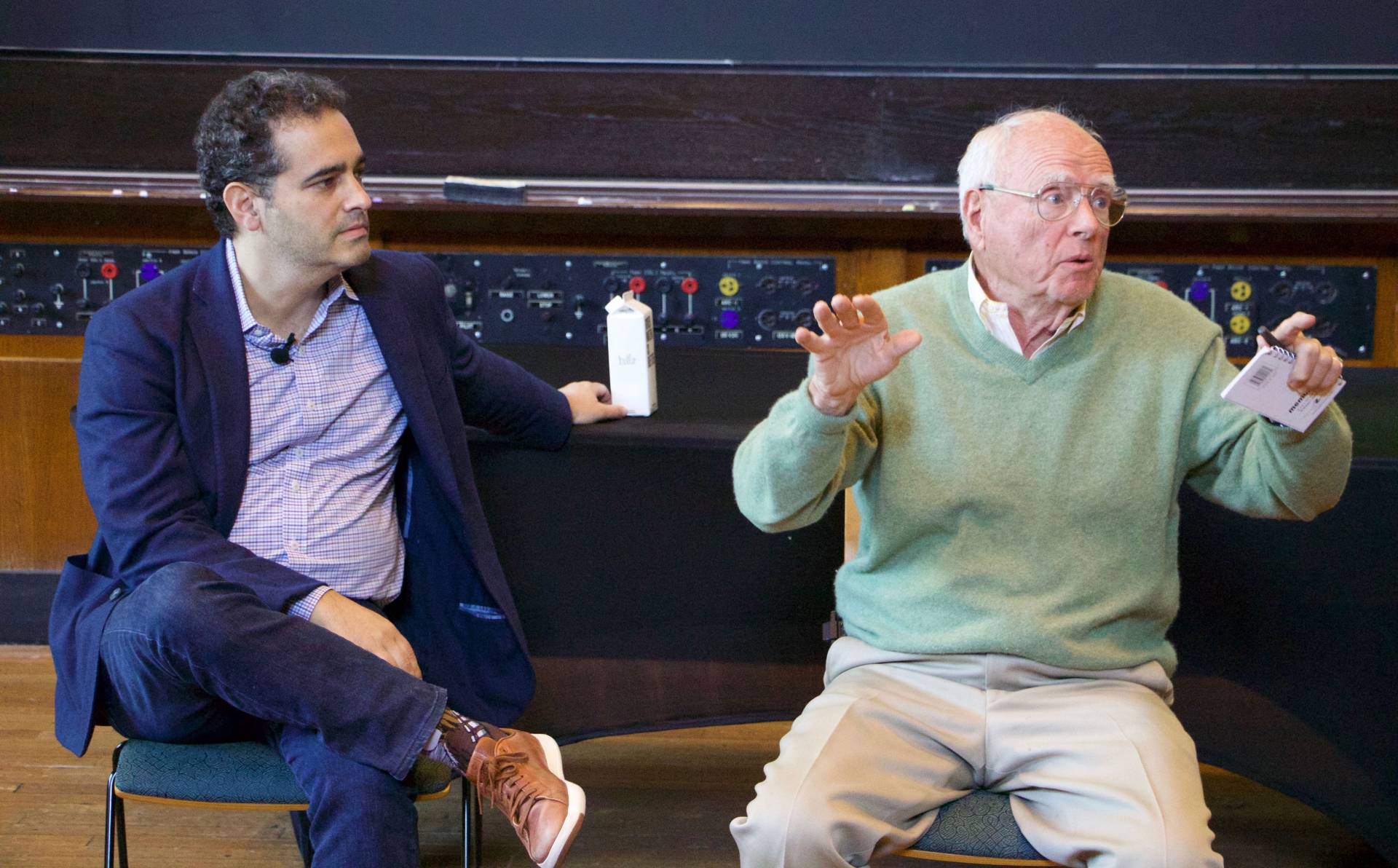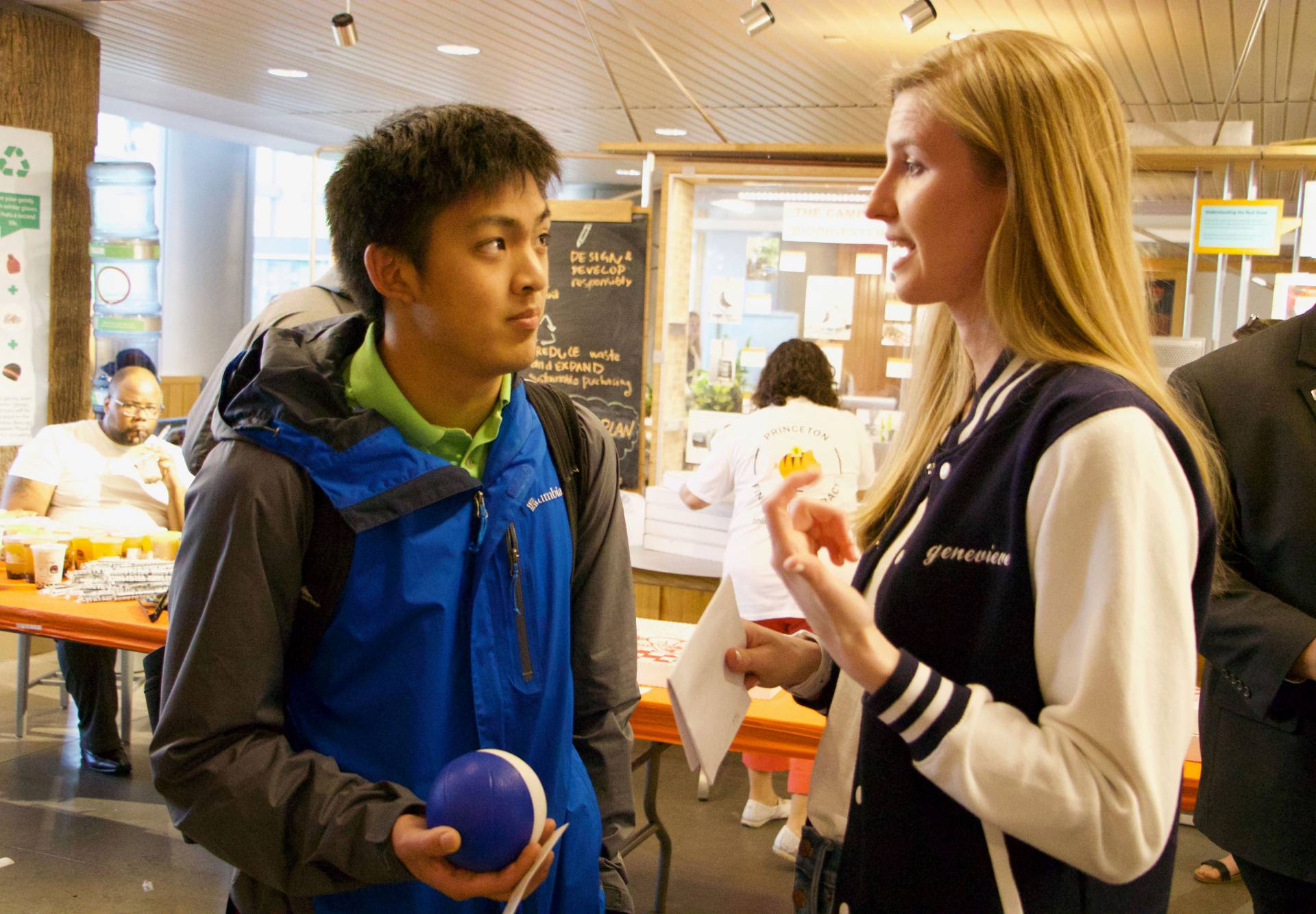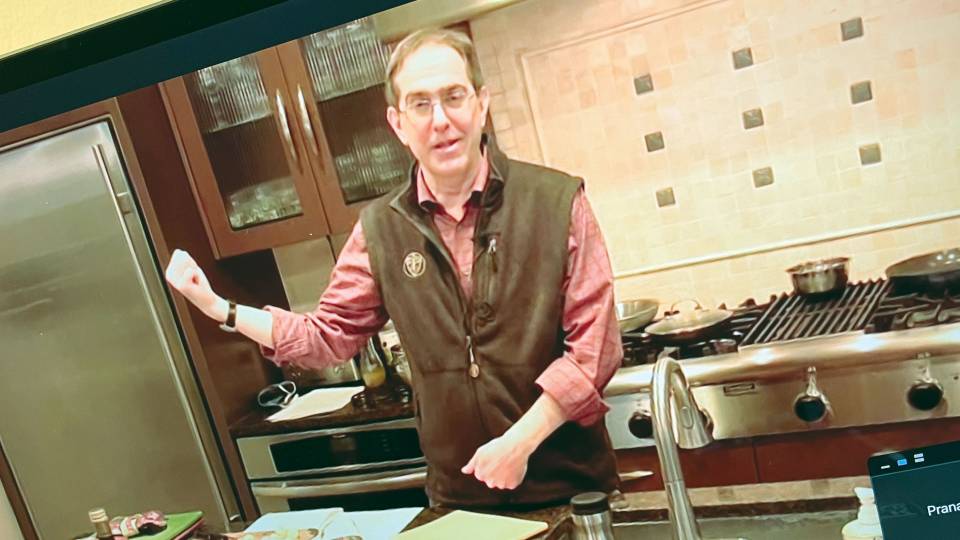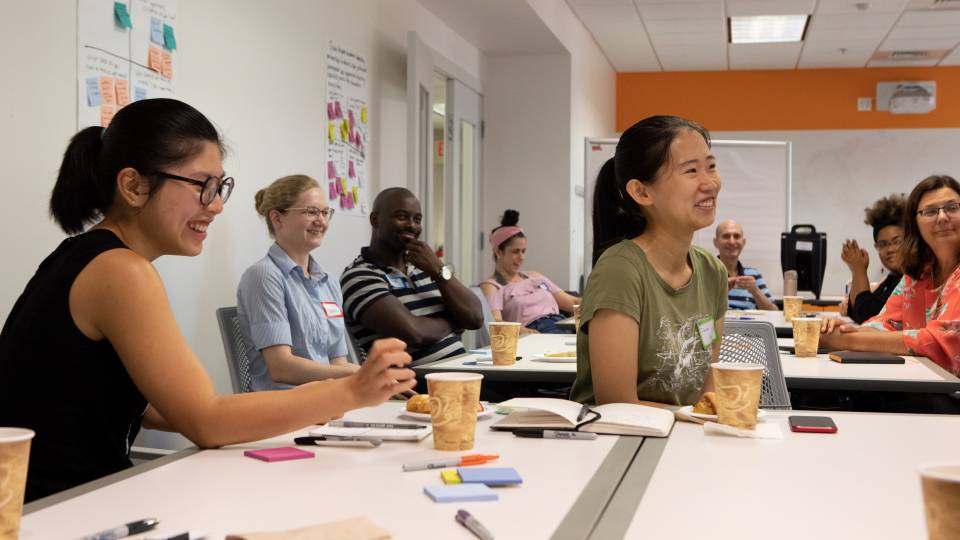Chase representative Eric Villanueva speaks with seniors about banking and credit at Princeton’s inaugural Financial Literacy Day. The students are Kayli Marshall, immediate left, Bensu Sicim, center, and Gabriella Pereira-Feron, right.
When it comes to finances, there’s no better time than the present to set out toward one’s goals. That was the main takeaway for graduate and undergraduate students attending Princeton University’s inaugural Financial Literacy Day, held May 7 at Frist Campus Center.
Through flash talks, consultations with financial companies, and a lively keynote address featuring Princeton alumni Jeff Kreisler, Class of 1995, and Howard “Pete” Colhoun, Class of 1957, attendees brushed up on financial terminology, examined their relationship with money and discovered tools to help them plan their financial future.
“We want students to learn the financial skills they will need throughout their lifetime while they are still in school,” said Eva Kubu, director of Career Services.

Alumnus Jeff Kreisler, Class of 1995, left, a comedian and editor-in-chief of PeopleScience.com, and Howard “Pete” Colhoun, Class of 1957, right, chairman of the board of advisers for Manchester Capital Management and a longtime participant in the National Public Television program “Wall Street Week,” take student questions about saving, spending and stock picking following Kreisler’s keynote address. Colhoun gave additional keynote remarks.
The event was sponsored by the University’s Financial Literacy Initiative, a campus-wide effort coordinated by the offices of Career Services, Financial Aid, Finance and Treasury and Advancement.
Kreisler, a comedian and editor-in-chief of PeopleScience.com, who co-authored the book “Dollars and Sense: How We Misthink Money and How to Spend Smarter,” used humor and behavioral science to explain the importance of understanding how we make financial decisions.
“We think about money all the time — we obsess about it,” Kreisler said. “We think about how you get it and how to spend it, but not how to save it and invest it.”
Financial decisions are often made on the spur of the moment and are directed by value judgments, he said.
“Ultimately, a lot of the traps we fall into — those of our own design and others — are about making poor value judgments,” Kreisler said.
Colhoun, chairman of the board of advisers for Manchester Capital Management and a longtime participant in the National Public Television program “Wall Street Week,” stressed the need for students to learn how money works.
“Most people think financial literacy is boring, it’s dry, it’s complicated,” he said. “I’m here to tell you otherwise. It’s as basic as how you eat.”
The afternoon’s activities included giveaways, refreshments and 10-minute talks covering a variety of topics including budgeting, saving, investing and credit card use.
As part of the University’s Financial Literacy Initiative, a website has been established where students can find financial resources and information. Additional programming is being planned for the upcoming academic year, including a possible Wintersession course.

Edison Lee, a senior, chats with Genevieve Ryan, Class of 2011, founder of Real World Playbook, following her flash talk. As part of Princeton’s Financial Literacy Initiative, students and alumni have free access to her organization’s “Real World Ready” course featuring videos and other tools to help them with decision-making involving finances, employment, health and lifestyle.
Students and alumni also will have free access to a curriculum available through Real World Playbook, an online community established by Princeton alumna Genevieve Ryan, Class of 2011, to help students and recent graduates prepare for personal and professional success.
The “Real World Ready” course features videos and other tools centered around financial, health, lifestyle and work-related decision-making.
Edison Lee, a senior, said he was glad for the knowledge he gleaned from the day’s sessions.
“It was super useful,” he said. “There’s a lot of real-world things we haven’t been taught to do.”
Kian Mintz-Woo, a postdoctoral research associate, said as a Canadian, IRS forms W-2 and W-4 were unknown to him before attending Financial Literacy Day. “I’m new to the U.S., so I wanted to get a sense of … the American terms.”
Kayli Marshall, a senior, arrived with a group of friends from her class year, who eagerly asked banking and credit questions of a Chase financial adviser. “I wanted to understand finances better because I’m graduating soon,” she said.
Many of the speakers indicated that attending to finances sooner than later was the best advice to ensure financial health throughout one’s life.
“We assume we can make up for it later,” said Jourdan Jones, senior director, market and competitive strategy, for TIAA. “You’re leaving a lot on the table if you’re waiting for a later time.”
The Graduate School, Bendheim Center for Finance, Scholars Institute Fellows Program, Undergraduate Student Government and Graduate Student Government co-sponsored the afternoon’s activities.






